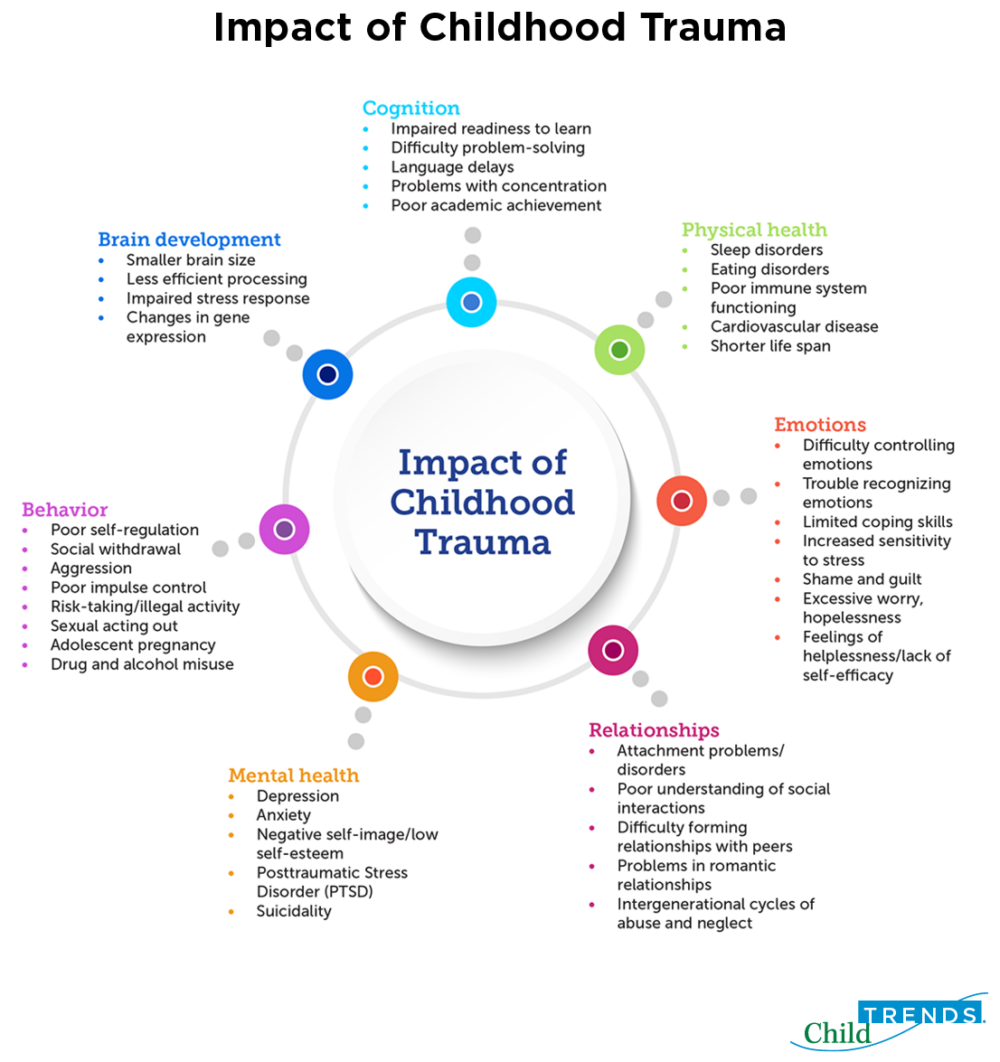Quora - May 15, 2023: trauma informed medical profession?
Even when repeated over time (in my experience periods of up to 3 years of daily repetition of trauma) can be overcome when one dedicates appropriate time and effort to healing.
Childhood trauma however stays. I guess that is what is called chronic. One may have periods of remission, sometimes lasting even long spells. Even decades. But there are relapses. That is simply the brain develops and works differently. This is what I learnt by living with my brain for a long-ish amount of time:
- Certainly when one experiences childhood trauma they will be more likely to develop permanent EPs, they may have a relapse with old EPs, will be more likely to have PTSD-like episodes, etc. So, traumatic events can either create new alters/dissociations or trigger old ones.
- But Not only in trauma. It must be acknowledged that once a brain creates alters instead of sub-personality types, it will do so for almost everything. So, life changes, even positive ones, can create additional selves.
- I think understanding this multilayered and extremely multifaceted and compartmentalised inner working of the brain has acute implication on the psychology of the individual. Standard psychology does not apply. Therapy has to be multilayered and multi-faceted to identify and manage each compartment in the brain.
- Compartmentalisation following childhood trauma can be nested with compartments inside compartments. Connections between these compartments can be either totally emotional, or totally logical, or driven by logic that may seem irrational if not understood.
- I also believe it is important to understand that nobody, EVER is stuck in the past. Parts and selves and alters and whatever you want to call them, are not stupid. If they are allowed to partake in daily life, they will catch up really quick. There are things like calendars, google, news, and lots of information that can bring an alter up-to-date. Stop victim blaming.
- And this is the same in regards to talking about dysregulation. I will leave you an answer I wrote about that yesterday , just to give you an idea of how wrong the whole concept of emotional dysregulation is.
- Understand that double-empathy is laziness. Someone pointed out to me that emotions are like colours. One only need to understand a few basic ones to empathise with others. All complex emotions are a mixture of those basic ones. I agree wholeheartedly.
- Stop accusing people of psychoses. True psychoses are actually quite rare. Most fears are well founded. Even an “irrational” fear may actually be rooted into something. And even when someone is having a psychotic episode, remember these people are terrified. Give them some love instead of making them feel like they are a burden. Otherwise one is actually validating those fear.
- Don’t give drugs to people to shut things away. At least not unless a patient specifically asks for it. We should be able to deal with our demons whichever way is best for us, and each should be fully supported. The end goal is healing, not following any specific process or school of thought.
These are just off the top of my head, I am sure there is more, and I can write a lot more about each, but I know infodumping can be frowned upon 🤓
But I think it is very important to extend trauma-informedness beyond the boundaries of mental health. Medical practitioners must ensure their practice is trauma-informed. Many people are traumatised or retraumatised by medical professionals. Many are accused of hipocondria or of being aggressive simply because they bring up issues that doctors are not competent enough to be aware of.
Access to care, signposting and referrals should always be trauma informed. Depending on the statistics, between 50% and 75% of people will experience trauma in their lives. We never know what happens in someone else’s life.
Trauma-informed in reality just means empathy-driven. So, get rid of double empathy theory. Spread information about the basic emotions, and how these are mixed in our minds in the same way the basic colours are blended by artists all over the universe to create millions of colours.
I guess, let’s humanise humanity, huh 😁💜
Here’s a couple of links.
Footnotes


